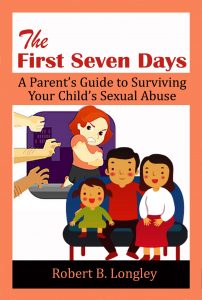
Sexual Assault
Sexual Assault Explosion
Seems like everywhere you look in the media today, another college sexual assault scandal is erupting on a college campus somewhere. I think Jerry Sandusky and Penn State got the ball rolling for most people. The reality is that people are starting to talk about sexual abuse – a subject that most people wouldn’t even discuss in private. It’s sort of a domino effect in social awareness more than an epidemic of sexual abuse. The problem has always been there. It’s just that we are talking about, and victims are feeling empowered to come forward and be heard.
Tip of the Iceberg
For a long time the estimate was that only 15% of sexual assaults get reported. I’d like to believe that the percentages of disclosure are going up, and not the incidents of abuse. One in three girls and one in five boys will experience some form of sexual abuse by the time they are 18. College sexual abuse is somewhat less well documented due to a variety of factors, Peer pressure, alcohol, and the expectation of being an adult all contribute to a murky sexual environment. He said, she said and songs from the Dead Kennedy’s set the tone for a complex problem. And lets not forget the ever forbidden, student teacher relationship. What’s appropriate varies from college to college. The numbers are just going to keep going up as more victims come forward, and more feel safe to do the same.
The Challenge of Campus Police
In some respects campus police are part of the problem and the solution. It’s been a long time since I was in college, but back in the day campus police were more concerned with getting you safely back to the dorm to sleep off whatever you had been doing. Question about laws that might have been broken weren’t generally asked unless someone was seriously injured or worse. Kids will be kids, so just try to make it as safe as possible for them.
Those days started coming to an end in early 1986 when a freshman at my school was raped and murdered. It made the national news, was followed by a series of lawsuits and through the dedicated work of her parents, a new law came into being. The Clery Act required schools to start tracking crimes on college campuses. It was a giant step forward, but a rape on campus was still little more than a checkbox on a form.
Fast forward to today and you are seeing schools across the country being hit with Title IX lawsuits over how they handled victim reports of sexual assaults. It’s time for campus police to make the leap to case worker. In the past some campus police were one step above mall security, now they need to be better trained in victim services than some local police departments. Victims are going to continue to come forward in record numbers, and campus police need to be ready for the volume.
Protect the Institution
What’s a college president to do? A couple of police reports, a lawsuit or two, and then a story on the front page of CNN. There is public pressure to fix the problem, but even if the problem is getting better, more sexual abuse victims are coming forward to share their experiences. The harder you try, the worse it seems to get. Eventually the scales will tip, but that’s still about 5 years away. Meanwhile endowments start shrinking, and the college board starts talking replacement.
Surely the problem occurred on your watch, so if you can’t fix it, they will bring in someone that will. And good luck getting a similar job at another school after getting the ax for this kind of public failure. Unless you are actively trying to cover things up, and that has happened, it’s really just a matter of being in the wrong place at the wrong time.
Advice to College Presidents in addressing sexual abuse
- Learn the facts about sexual abuse and educate your board.
- Take the position that as bad as the problem is portrayed in the media, it’s actually several times worse.
- Start building programs for a larger victim population than you currently know about.
- Educate the media and take the position that your school expects numbers of abuse reports to go up because you are creating a climate where victims can feel heard and respected and that appropriate action will take place for all incidents reported.
- Require all students and staff to take a class/seminar on sexual abuse and misconduct
- Establish a certification program for domestic violence or sexual assault advocacy
- Restrict or create strict policies around student/teacher relationships
- Go beyond your Clery Act Reporting requirements with a case management system geared toward victim services
- Don’t dismiss allegations just because the accused is the pillar of the community, Nobel loreate, or Pulitzer prize winner. These people actually have a higher degree of committing sexual abuse than the general population.
- Don’t try to bury anything. It will come back to bury you.
- If you need help rolling this out, get help. Feel free to contact me.
- Establish procedures for investigations and involvement of local police
Let us know if we can help you dealing with your family’s sexual abuse situation. For ideas to get started please check out our book on what to do during the early days after disclosure.

Sexual Abuse
This is not the basis for a celebrity death match. It’s more an observation on who is better at dealing with sexual abuse. The NCAA definitely gets points for decisiveness. Their decision in the Penn State case clearly sends a message that the NCAA will not tolerate sexual abuse within the realm of college athletics. The Catholic Church has yet to make any gesture that even comes close to having the same impact. In reality it’s probably not a fair comparison.
The Catholic Church has been quietly dealing with (or not dealing with) the issue of abuse within the church for decades. The strategy has been one of containment. Move problem priests to places where they are less likely to abuse. Hire a bunch of lawyers. Issue a policy statement ever so often. And write a bunch of checks as they watch churches go bankrupt around the country. A few select victims get large paydays, but most still suffer in silence feeling forsaken by their church. This cycle repeats itself over and over. The problem with the Catholic Church’s approach is that they are a self policing organization. How do you take a hard line at disciplining yourself?
Catholic Church Oversight
The NCAA has the advantage of being an oversight organization. Amongst other things it’s mission is to ensure fair competition, academic standards, and other standards for all collegiate athletics. Colleges aren’t an extension of the NCAA, they answer to it’s authority. The Catholic Church tries to be in both roles and fails in the process.
To be fair, the church has made some progress over the year. They are getting better at dealing with the problem, but they still aren’t where they need to be. Some of this is because they are fighting wars on multiple fronts. Abuse cases are global, and they are quickly followed by lawsuits and diminishing membership. Where the church has taken a band-aid approach to the cancer in their midst, the NCAA has gone for the shock and awe strike on Penn State. This full nuclear strike totally eclipsed the results of the sexual abuse case against the diocese of Philadelphia just 100 miles down the road. Point NCAA!
Advantage NCAA
Media attention aside, this doesn’t actually push a win over to the NCAA side. The NCAA response is on the scale that we wish the Catholic Church would take, but in reality a more measured approach would have probably been more appropriate. Much like parents that kill their children’s abusers, the NCAA reacted with as much force as they could, dealing with a problem they had never deal with before. In some respects the Catholic Church’s approach of pressing buttons to see what works may have actually been a better approach (even though the Church doesn’t do it well). The Church does have the advantage of experience. If it were not for the covering up that has gone along with experience, they might have actually come up with an approach that works by now.
I would like the NCAA to reconsider and take a step back from certain parts of their ruling. Somewhere between the two approaches is something that makes sense. Many of the sanctions impact the athletes which seems contrary to the goals of the NCAA. Yes make Penn State an example, but don’t just make it the Nuremberg trial of collegiate sports. Make Penn State the center for how to deal with sexual abuse in organizations of all types. Make Penn State fund the initiative at the same level of the sanctions they are imposing. Create policies that all employees or contracts at NCAA sanctioned schools be mandatory reporters of sexual abuse. Establish national sanctions for violations of non-reporting. Etc. Etc.
Finding Solutions
This is somewhat of a half baked idea, but I’ve had 10 years to think about how to deal with sex offenders, so I’ve at least had time to think about it. The NCAA took a bold step, that was largely driven by public pressure rather than a strategic approach to an organizational problem. This maybe the first college sports sex abuse case to hold center stage on all the major news outlets, but it is probably not the last. The NCAA has the advantage of being an oversight organization. They have the potential to succeed at addressing a problem that the Catholic Church is still likely to fail at. By having Penn State create a center that focuses on developing solutions that work, it could result in successful preventive and appropriate abuse response approaches for all organizations. Everybody wins!
Let us know if we can help you dealing with your family’s sexual abuse victim situation. For ideas to get started please check out our book on what to do during the early days after disclosure.
Sexual Abuse
Recently Delaware made headlines as a result of a doctor who had raped and molested over 100 children. There were numerous complaints over the years. Well once it made it to CNN, the victims came forward in droves. The Delaware legislature has responded by creating one of the most comprehensive laws in dealing with professional sexual exploitation.
Elements of the Bradley law:
- Physicians seeking to obtain or renew a license must disclose all previous investigations into their behavior.
- The medical disciplinary board can force hospitals and other healthcare institutions to release records of previous investigations.
- All hearings of the medical board involving alleged misconduct must be held in public.
- Doctors accused of improper behavior won’t be able to learn the identity of the person(s) making the complaint.
- The medical board can expedite suspensions when there is a threat to the public.
- Every doctor must be fingerprinted. The medical board must conduct a criminal background check every 6 months.
- A chaperone must be present when a child under 15 is at least partially disrobed for an exam. Parents and caretakers must be informed of this requirement.
- The medical board can suspend or revoke a physician’s license for failing to report suspected misconduct by a colleague.
- The medical board can receive verbal complaints as well as written complaints.
- Physicians, police and prosecutors must take have training in recognizing and reporting child abuse.
- The medical boards 7 (out of 16) non-physician members may have a healthcare background.
- A healthcare provider can be sued for healthcare abuse of a child any time after the act, instead of the current 2-year statute of limitations.
If the laws in your state are lacking, here is a good model to bring to your legislator of choice.
Let us know if we can help you dealing with your family’s sexual abuse situation. For ideas to get started please check out our book on what to do during the early days after disclosure.


